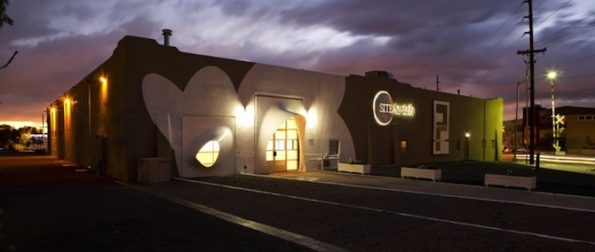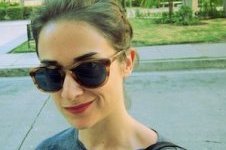Search
To search for an exact match, type the word or phrase you want in quotation marks.
A*DESK has been offering since 2002 contents about criticism and contemporary art. A*DESK has become consolidated thanks to all those who have believed in the project, all those who have followed us, debating, participating and collaborating. Many people have collaborated with A*DESK, and continue to do so. Their efforts, knowledge and belief in the project are what make it grow internationally. At A*DESK we have also generated work for over one hundred professionals in culture, from small collaborations with reviews and classes, to more prolonged and intense collaborations.
At A*DESK we believe in the need for free and universal access to culture and knowledge. We want to carry on being independent, remaining open to more ideas and opinions. If you believe in A*DESK, we need your backing to be able to continue. You can now participate in the project by supporting it. You can choose how much you want to contribute to the project.
You can decide how much you want to bring to the project.

I’ve got a plan for next summer. I want to go to New Mexico to see SITElines, the 2014 edition of the biennale that has been celebrated since 1995 in the contemporary art centre SITE Santa Fe. The aim of this years’s edition of the biennale is to present a new focus of contemporary art in the Americas. Let’s see how it’s presented.
We’re at a key moment in the writing of new identitarian links between the United States and the rest of the continent. The former has been considering for a while now how to incorporate definitively into the construction of its identity the plurality of nationalities that already de facto configure it, and these efforts are evident in the discursive motors set in motion by the large centres of curatorial power. If we look back at the project PST 2011 at the Getty (and let’s see what lines of work it proposes for the next edition in 2015); we see the work about Latin American identities that museums such as the MCAST (San Diego), the LACMA (Los Angeles), MOLAA (Los Angeles), as well as others, have been carrying out for a while now.
The curatorial team for SITElines is made up of not exclusively American professionals. Candice Hopkins and Lucía Sanromán will be surrounded with a team of first class assessors, and satellite curators. Names like Christopher Cozier, Julieta Gonzalez, Rosa Martínez, Osvaldo Sánchez, and Douglas Fogle –as well as others – could grant a heterogeneous vision. But I return to the question: do the plural origins of the professionals guarantee a good representation of the diversity embedded within what is American?
SITElines Unsettled Landscapes 2014 reclaims the plural history of the state of New Mexico. Its Native American heritage, the legacy of the Spanish empire, its past as a Mexican province, and the current reality in which all these groups coexist in an interesting game of tensions. The biennale wants to talk about landscape, territory and trade at a key moment for economic relations between the USA and Mexico: the twentieth anniversary of the signing of NAFTA.
The press release talks of Pan-Americanism. It recurs to the city of Santa Fe’s proximity with the Pan-American motorway, an infrastructure dreamt up to articulate the relations between the states of the continent, formulated in the OEA conference of 1923. However seductive this image might seem, my doubt lies in the pertinence of using today the prefix ‘pan’; be wary of thinking that one can cover this American totality in an art biennale that is only six months longs. Beware of aspiring to write about the totality; watch out for all those nuances of identity, politics and economics that conform it. I’m keen to go and see how they do it.

Paloma Checa-Gismero is Assistant Professor at San Diego State University and Candidate to Ph.D. in Art History, Criticism and Theory at the University of California San Diego. A historian of universal and Latin American contemporary art, she studies the encounters between local aesthetics and global standards. Recent academic publications include ‘Realism in the Work of Maria Thereza Alves’, Afterall, autumn/winter 2017, and ‘Global Contemporary Art Tourism: Engaging with Cuban Authenticity Through the Bienal de La Habana’, in Tourism Planning & Development, vol. 15, 3, 2017. Since 2014 Paloma is a member of the editorial collective of FIELD journal.
"A desk is a dangerous place from which to watch the world" (John Le Carré)